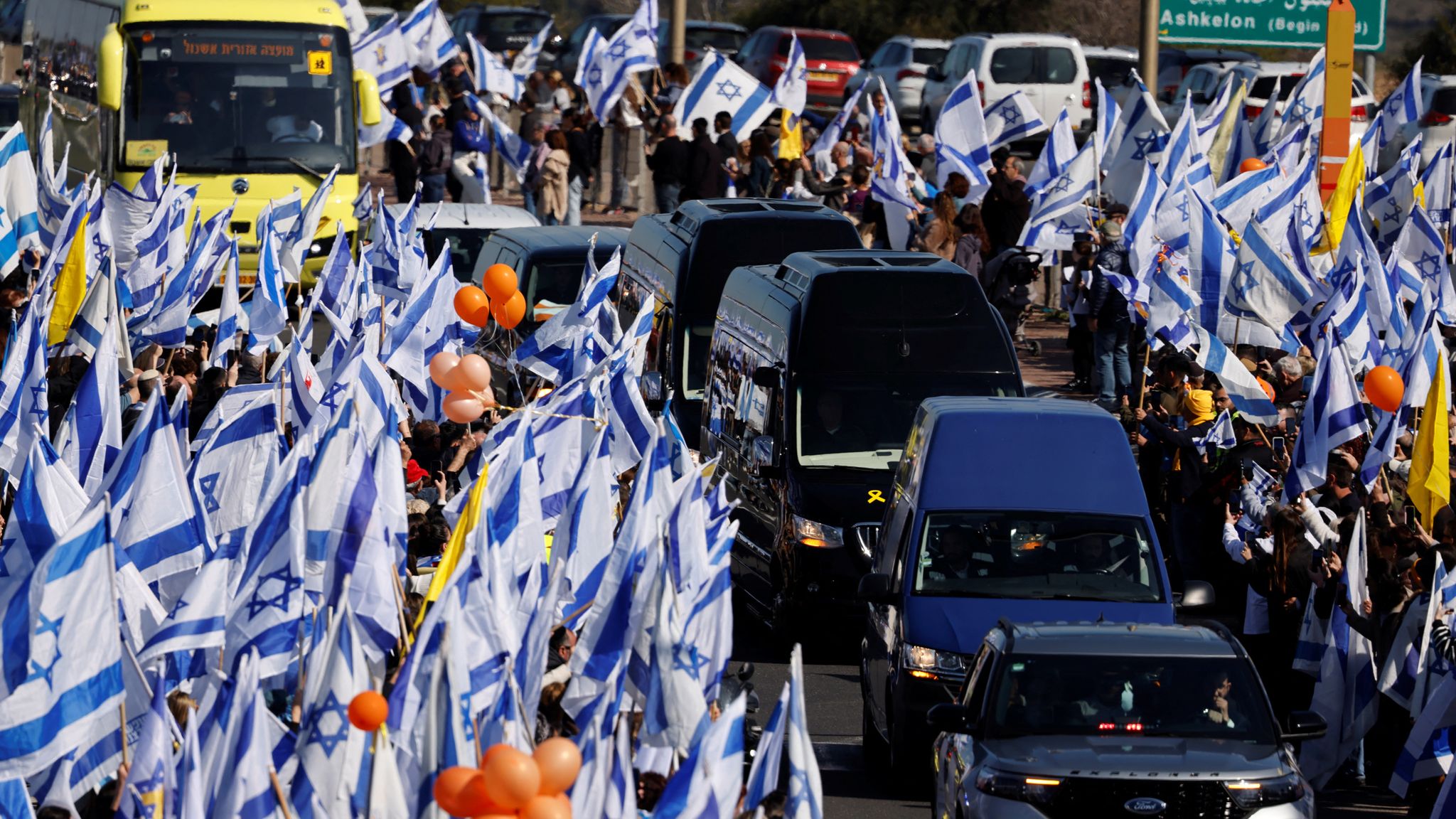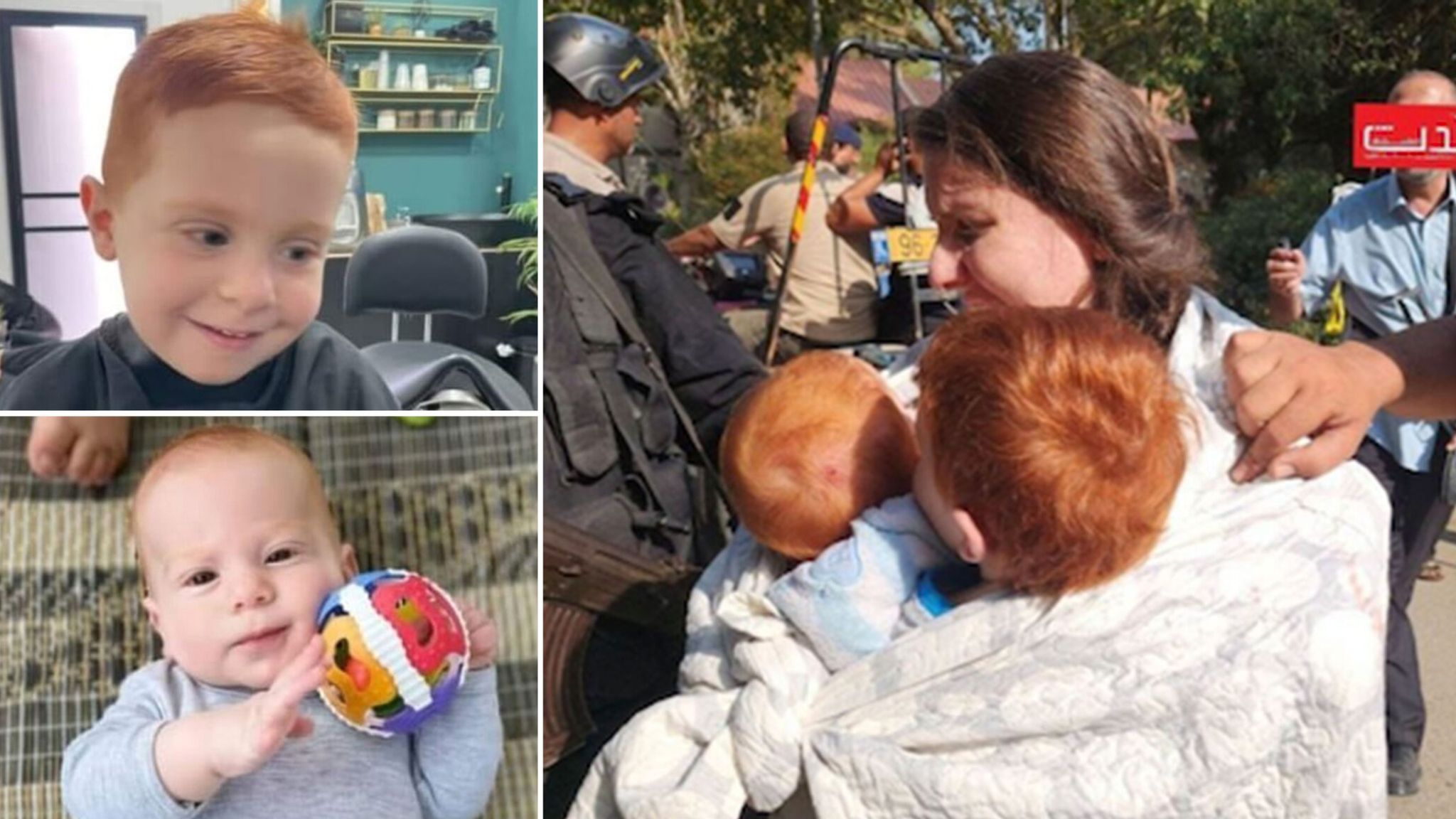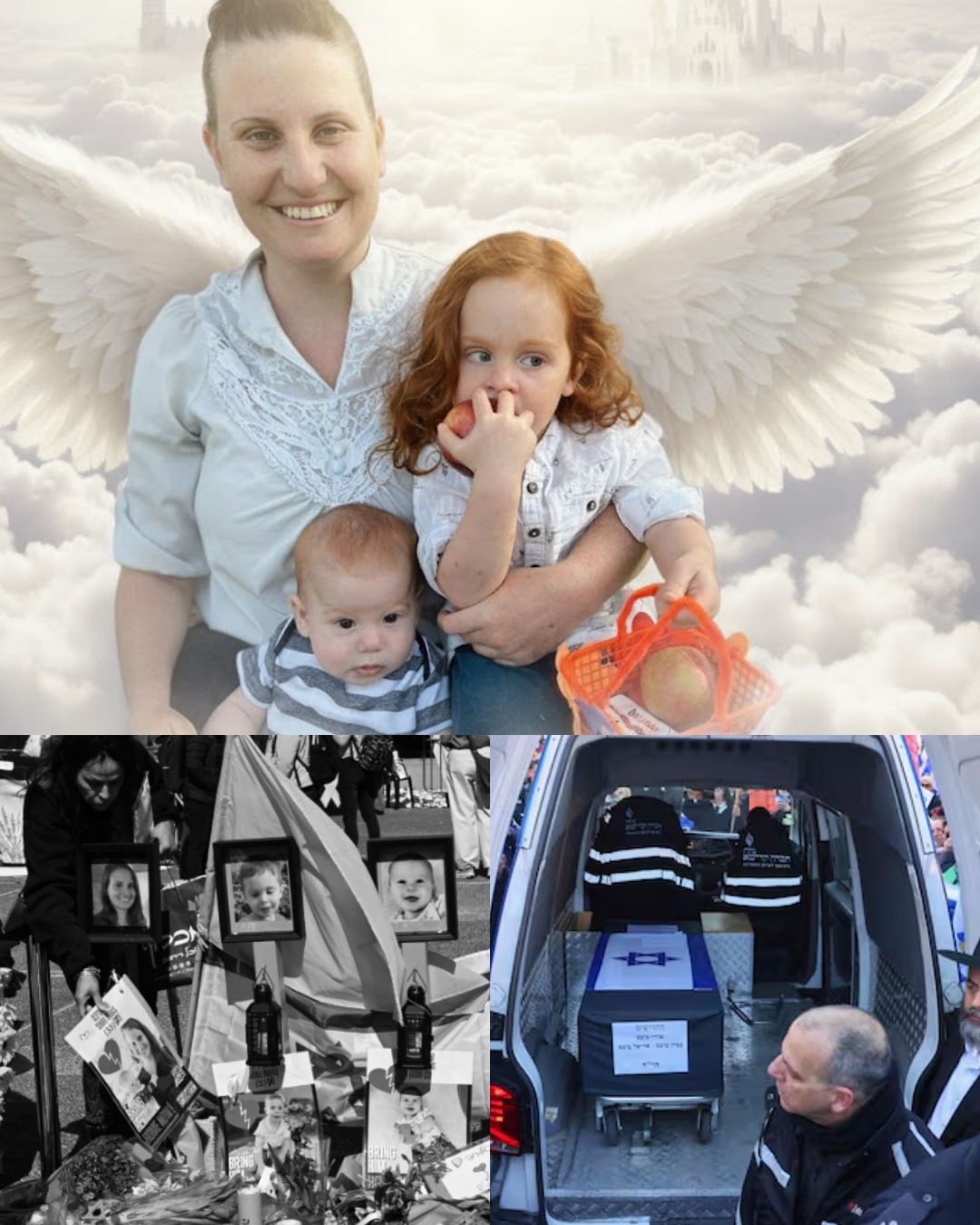On the morning of October 7, 2023, the peaceful routines of Nir Oz, a quiet kibbutz in southern Israel, were violently shattered. Yarden and Shiri Bibas, along with their two children, Ariel and Kfir, began what seemed like an ordinary day. The sun rose over the community, children were getting ready for school, and families went about their daily lives. But that ordinary morning would become the start of an unimaginable nightmare.

Without warning, Palestinian militants launched a sudden and brutal attack on Nir Oz. Chaos erupted. In the confusion, Yarden Bibas was separated from his wife and children. He was abducted alone, leaving Shiri and the children behind. In the days that followed, Shiri’s parents—who also lived on the kibbutz—were discovered murdered, victims of the same violent assault. For the Bibas family, the nightmare had just begun. For Israel, the attack became a symbol of the vulnerability of communities living under constant threat.

Shiri and her children were reportedly transferred to another armed group within Gaza: the Mujahideen Brigades of the Palestinian Mujahideen Movement. The uncertainty surrounding their fate plunged their friends, neighbors, and the broader Israeli public into fear and grief. Israel expressed public concern, trying to locate and negotiate for the safe return of the hostages. The world watched, holding its breath, as days turned into weeks with little news.

Months passed with scarce information. On February 19, 2024, the Israeli Defense Forces (IDF) released a video showing Shiri and the children alive, seemingly unharmed just days after the abduction. The footage, filmed in southern Gaza, offered a glimmer of hope—a fleeting proof that the family was still together. Yet, that hope was fragile. In late 2023, Hamas had publicly claimed that Shiri and her children had died during Israeli bombings in Gaza, spreading misinformation that concealed the truth and prolonged the suffering of those awaiting news.
Yarden endured months in captivity before his release on February 1, 2025. His return was bittersweet. Though alive, he carried the unbearable weight of knowing his wife and children were still missing. The relief of freedom was overshadowed by fear, uncertainty, and grief. His story became emblematic of the anguish faced by hostages and their families—moments of survival juxtaposed with the torment of losing loved ones.

On February 18, 2025, Hamas announced it would release the bodies of Shiri and the children. At first glance, this seemed like a step toward closure. But the revelation concealed an even darker truth. Just days later, on February 21, Israeli officials confirmed the worst fears: Ariel and Kfir had not died in bombings, as Hamas had claimed. Instead, they had been brutally murdered in November 2023—strangled to death and mutilated by their captors. The cruelty inflicted upon these innocent children was almost unimaginable, a horrifying testament to human brutality.

Shiri’s fate was equally tragic. She had also been killed in captivity, leaving Yarden as the sole survivor of a family destroyed by violence. The deliberate concealment and manipulation of information by Hamas had prolonged his suffering, extending the torment of uncertainty for over a year.

The return of the bodies brought profound grief and outrage. The community mourned the loss of Shiri, Ariel, and Kfir, whose lives had been stolen violently and prematurely. Neighbors remembered Ariel and Kfir as bright, lively children full of laughter and curiosity. Friends recalled Shiri as a devoted mother whose love for her family was boundless. Yarden, though free, carried the invisible scars of witnessing and surviving unimaginable trauma.
The story of the Bibas family is one of unbearable loss, a stark reminder of the human cost of conflict. It is also a story of endurance. Yarden’s survival is a testament to human resilience, yet it is tempered by profound sorrow and the weight of memory. His life after release is forever defined by the absence of his beloved wife and children, their laughter silenced and their futures stolen.

For the residents of Nir Oz and beyond, the Bibas family became more than a tragedy—they became a symbol. A symbol of the fragility of life in a region marked by tension, and of the desperate hope that even amid violence, the truth will eventually be revealed. The legacy of Ariel, Kfir, and Shiri is one of remembrance, a call to acknowledge not only the horrors of war but the enduring responsibility to protect the innocent.

While the horror of their deaths cannot be undone, telling their story is crucial. It highlights the indiscriminate cruelty of violence, the agony of those left behind, and the moral imperative to seek justice. Their lives, though cut tragically short, demand that the world remembers them—not just as victims, but as human beings whose potential and joy were violently stolen.

The Bibas children, in their innocence, remind us of what is at stake whenever conflict overtakes ordinary lives. Ariel and Kfir were not soldiers, militants, or political figures—they were children, full of life and potential, whose only crime was being in the wrong place at the wrong time. Shiri’s devotion as a mother was ordinary, yet extraordinary in the face of such danger. Yarden’s courage and survival underscore the resilience of the human spirit, even when confronted with unimaginable loss.

In the wake of their deaths, communities rallied to mourn, remember, and honor the Bibas family. Public tributes, memorials, and stories shared by neighbors kept their memory alive. The tragedy sparked reflection on the human cost of political and military conflicts, emphasizing the importance of safeguarding innocent lives and exposing the truth even when it is uncomfortable or horrifying.

Ultimately, the story of the Bibas family is a somber testament to the fragility of life and the enduring impact of violence. It is a call to empathy, remembrance, and justice. It reminds us that behind every news headline, every statistic, there are real people, real families, and real suffering. Yarden, though scarred by grief, carries the memory of Shiri, Ariel, and Kfir, ensuring that their story—and the injustice done to them—will never be forgotten.

Their tragedy is both a warning and a plea: a warning of the consequences of unchecked violence, and a plea to protect those who cannot protect themselves. Through remembering their lives, the community honors the humanity of Shiri, Ariel, and Kfir—and ensures that their lives, though tragically short, will continue to resonate, teaching lessons of courage, love, and the devastating cost of conflict.

The Bibas family will forever remain etched in memory: a mother’s love, two children’s innocence, and a father’s survival amid horror. Their story is a stark reminder that even amid the horrors of the world, human compassion, remembrance, and truth remain our most vital legacies.




